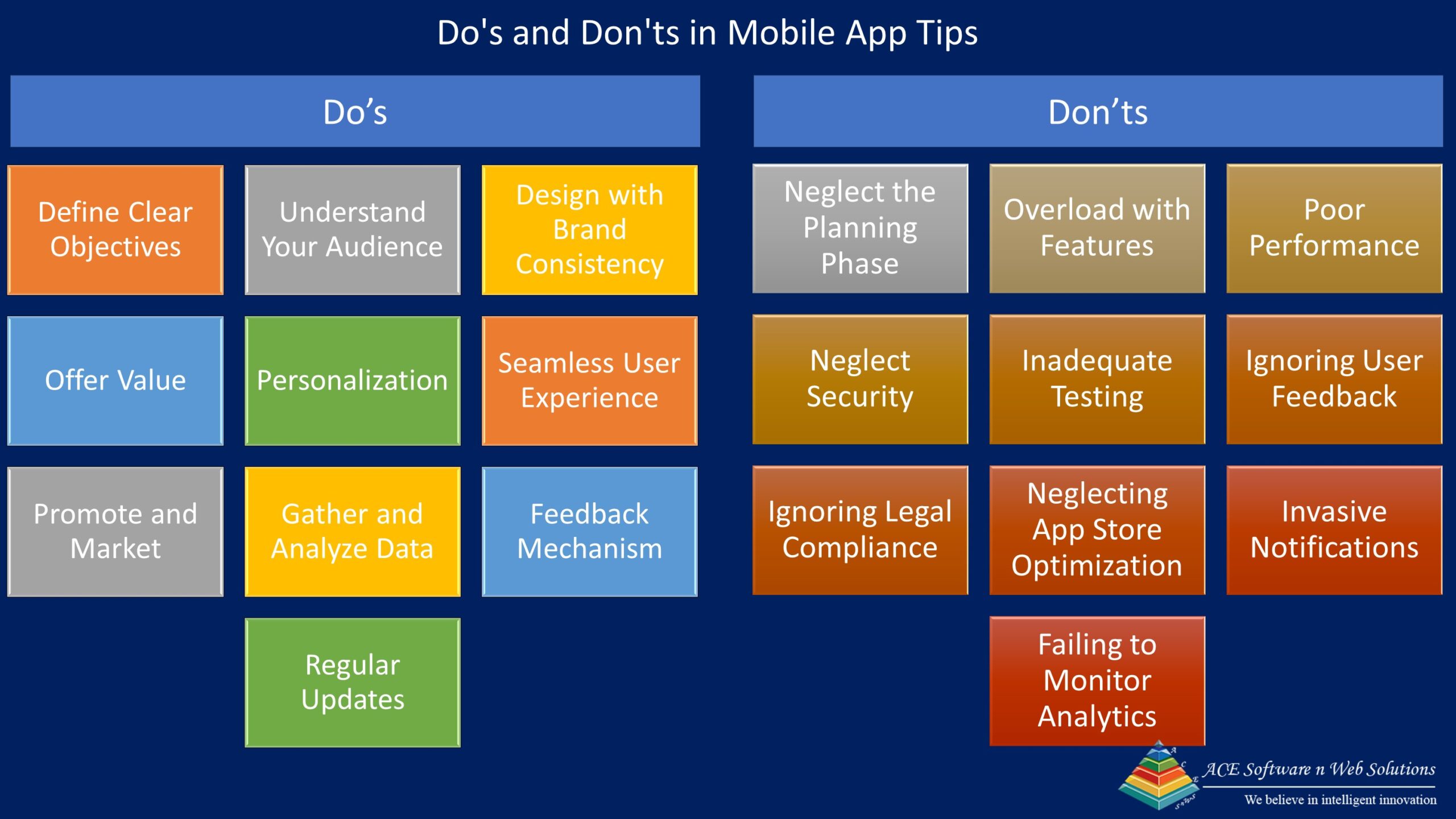
Do’s and Don’ts in Mobile App Development for your business
Developing a mobile app for your business can be a powerful tool for customer engagement, brand visibility, and revenue generation. Here are some do’s and don’ts specific to creating a mobile app for your business:
Do’s:
- Define Clear Objectives: Determine the specific goals and objectives you want to achieve with the app, such as increasing sales, improving customer service, or enhancing brand loyalty.
- Understand Your Audience: Research and understand your target audience to tailor the app to their needs and preferences.
- Design with Brand Consistency: Ensure that your app’s design and user interface align with your brand’s visual identity and messaging.
- Offer Value: Provide users with value, whether it’s through convenience, exclusive content, discounts, or unique features that solve their problems.
- Personalization: Implement features that allow for user personalization and customization. Personalized experiences can increase user engagement.
- Seamless User Experience: Focus on providing a seamless and intuitive user experience to keep users engaged and reduce friction in their interactions with the app.
- Promote and Market: Invest in marketing and promotion to make users aware of your app. Utilize various marketing channels, including social media, email, and your website.
- Gather and Analyze Data: Collect user data (with consent and in compliance with privacy regulations) and analyze it to gain insights into user behavior and preferences.
- Feedback Mechanism: Incorporate feedback mechanisms to allow users to share their thoughts, report issues, and suggest improvements. Act on user feedback.
- Regular Updates: Continuously update the app with new features, bug fixes, and improvements to keep users engaged and satisfied.
Don’ts:
- Neglect the Planning Phase: Don’t rush into development without a clear and well-thought-out plan. Planning is crucial for success.
- Overload with Features: Avoid cluttering the app with too many features. Focus on the core functionalities that align with your business objectives.
- Poor Performance: Don’t compromise on app performance. Slow or buggy apps can lead to user frustration and abandonment.
- Neglect Security: Don’t overlook security measures. Protect user data and privacy by implementing robust security practices.
- Inadequate Testing: Skipping thorough testing can lead to the release of a buggy app. Test on various devices and OS versions to ensure compatibility.
- Ignoring User Feedback: Dismissing user feedback or failing to act on it can result in a loss of users and business opportunities.
- Ignoring Legal Compliance: Don’t ignore legal requirements, including privacy regulations like GDPR or CCPA, as non-compliance can lead to legal issues and damage your reputation.
- Neglecting App Store Optimization: Poorly optimized app listings can result in low visibility on app stores. Optimize your app’s title, keywords, and description.
- Invasive Notifications: Avoid bombarding users with excessive or irrelevant notifications. Respect their preferences and privacy.
- Failing to Monitor Analytics: Neglecting to monitor user analytics can result in missed opportunities for improvement and growth.
Building a mobile app for your business requires careful planning and ongoing attention to user needs and industry trends. It’s essential to deliver value to users while maintaining high-quality performance and security standards.


